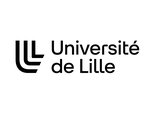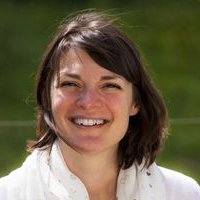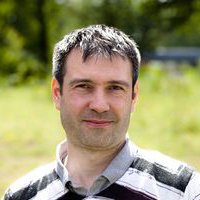Nuclear Magnetic Resonance a Compass to Nanoworld
- Durée : 9 semaines
- Effort : 27 heures
- Rythme: ~3 heures/semaine
- Langues: Anglais
Description
Nuclear Magnetic Resonance (NMR) phenomenon is currently exploited for many purposes, including medical imaging using the MRI technique but also the characterization of the structure and the dynamics of matter at atomic scale by NMR spectroscopy, which is a key tool in chemistry, structural biology, pharmacology and material sciences. NMR is also employed for oil exploration or the inspection of artworks.
This online course, entitled Nuclear Magnetic Resonance, a compass for the nanoworld, aims at providing students and professionals the basic knowledge about Nuclear Magnetic Resonance (NMR) and an overview of its applications. With the aim of developing the subject from the beginning, this course sets out the fundamental principles of NMR. At the end of the course, you will know about the commonly used NMR experiments and the interpretation of the NMR spectra of solutions and solids. This course will notably highlight the usefulness of NMR spectroscopy for the characterization of organic molecules, proteins, sugars and advanced materials.
This course is intended for undergraduate and graduate students as well as educators and professionals who want to learn the basic concepts of NMR and discover its major applications. This multi-disciplinary course will appeal to students and professionals with background in chemistry, physics, material sciences, pharmacology, medicine and Earth sciences. .
Prérequis
Students should have a background in basic chemistry, including: (i) the atoms, the elements and the periodic table; (ii) the structure of organic molecules (functional groups, stereochemistry); as well as in basic physics, including some knowledge about the spectroscopy (energy levels, photon, frequency) and the magnetism
Plan de cours
- Week 1: Importance of NMR and the basic principles of NMR spectroscopy.
- Week 2: NMR experiment and 1H NMR of organic molecules in solution.
- Week 3: Probing covalent bonds and connectivities in organic molecules via J-couplings.
- Week 4: 13C NMR of organic molecules in solution.
- Week 5: 2D NMR of organic molecules in solution and NMR of proteins.
- Week 6: A practical work of liquid-state NMR and NMR of sugars.
- Week 7: Solid-state NMR and the structural study of glasses by NMR.
- Week 8: NMR of catalysts and batteries as well as a practical work of solid-state NMR.
Équipe pédagogique
Olivier Lafon
Catégories
Cedric Lion
Catégories
Robert Schneider
Catégories
Frédérique Pourpoint
Catégories
Julien Trebosc
Catégories
Établissements
Licence
Licence pour le contenu du cours

Attribution - Pas d’Utilisation Commerciale
Vous êtes autorisé à :
- Partager — copier, distribuer et communiquer le matériel par tous moyens et sous tous formats
- Adapter — remixer, transformer et créer à partir du matériel
Selon les conditions suivantes :
- Attribution — Vous devez créditer l'oeuvre, intégrer un lien vers la licence et indiquer si des modifications ont été effectuées à l'oeuvre. Vous devez indiquer ces informations par tous les moyens raisonnables, sans toutefois suggérer que l'offrant vous soutient ou soutient la façon dont vous avez utilisé son oeuvre.
- Pas d’Utilisation Commerciale — Vous n'êtes pas autorisé à faire un usage commercial de cette oeuvre, tout ou partie du matériel la composant.
Licence pour le contenu créé par les participants du cours

Attribution - Pas d’Utilisation Commerciale
Vous êtes autorisé à :
- Partager — copier, distribuer et communiquer le matériel par tous moyens et sous tous formats
- Adapter — remixer, transformer et créer à partir du matériel
Selon les conditions suivantes :
- Attribution — Vous devez créditer l'oeuvre, intégrer un lien vers la licence et indiquer si des modifications ont été effectuées à l'oeuvre. Vous devez indiquer ces informations par tous les moyens raisonnables, sans toutefois suggérer que l'offrant vous soutient ou soutient la façon dont vous avez utilisé son oeuvre.
- Pas d’Utilisation Commerciale — Vous n'êtes pas autorisé à faire un usage commercial de cette oeuvre, tout ou partie du matériel la composant.






